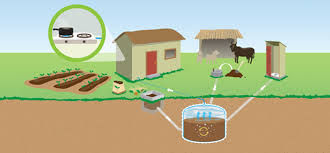Speaking Test Samples with Answers 2023 (Iran) I Tips for Speaking Test
Talk About a Group Activity That You Enjoyed Sample Answer
Earlier
we regularly conduct Speaking Test Samples with Answers 2023 zoom sessions, so
many members request us on Whatsapp ielts free preparation group about ielts
speaking sample answers, so we are going to start it again, here we will add
sample answers of the latest ielts speaking tests all over the world. As you
know in case of ielts speaking section, questions are repeated most of the
time, so sample answers of the latest actual real speaking tests all over the
world are really helpful for the ielts aspirants for ielts speaking
preparation. No need to learn these sample answers by heart, just get idea how
to speak on different question types and try to make you own adding these
information too in your own way.
In this article we are going to add the Speaking Test Samples with Answers 2023 which was conducted in IRAN, one of the members of our ielts whatsap group share this with us recently. As questions are repeated from past examination questions, so try to practice these new questions, they may come in your real test. Second important thing about this article is, it have Tips for Speaking Test covering all three section of the ielts speaking test.
Some Tips to Help You Create Effective and Well-Structured Answers for IELTS Speaking Questions, Tips for Speaking Test:
- Understand the question: Take a moment to fully comprehend the question before responding. Pay attention to the keywords, as they can guide you on what information to include in your answer.
- Provide a direct response: Address the question directly and avoid going off-topic. If the question asks for your opinion, make sure to clearly express it.
- Organize your thoughts: Take a few seconds to organize your ideas before speaking. You can mentally create an outline or jot down a few key points to ensure a coherent response.
- Use complete sentences: Speak in complete sentences to showcase your language skills. Avoid responding with only one-word answers or incomplete phrases.
- Develop your answer: Elaborate on your response by providing relevant details, examples, and explanations. This will demonstrate your ability to express ideas and support them effectively.
- Use a range of vocabulary: Aim to incorporate a variety of vocabulary words and phrases into your answers. This will showcase your lexical resource and help you avoid repetition.
- Employ grammatical structures: Demonstrate your understanding of different grammatical structures by using a range of tenses, clauses, and sentence types. This will enhance the complexity of your speech. Pay full attention to the question, how it is being asked in which tense, if its past than reply in past, if in future than reply in future, and if its about present than reply using present tense, its very important, take care of questions tense.
- Practice pronunciation and intonation: Work on your pronunciation and intonation to ensure clear communication. Practice stressing key words and using appropriate intonation patterns to convey meaning effectively.
- Be mindful of fluency: Try to maintain a steady pace while speaking and avoid long pauses or excessive hesitations. Practice speaking at a natural speed to enhance your fluency.
- Monitor your timing: Pay attention to the time limit for each question and make sure your response fits within that timeframe. Practice speaking within the given time constraints to ensure you can complete your answer comfortably.
Remember, regular practice and familiarization with the IELTS Speaking test format will greatly improve your performance. Consider seeking feedback from a language tutor or participating in mock speaking exams to refine your skills further.
Speaking Test Samples with answers 2023 Part 1, IRAN:
- Question 1: What is your full name?
- Sample Answer: My full name is ------------.
- Question 2: Can I see your ID?
- Sample Answer: Certainly, here is my ID.
- Question 3: Do you work or study?
- Sample Answer: I currently work as a teacher in an academy and I do home teaching too.
- Question 4: Do you like your workplace?
- Sample Answer: Yes, I really enjoy working at my workplace. The environment is dynamic and the team is supportive, which makes it a positive and motivating place to be.
- Question 5: Would you like to make any changes to your workplace?
- Sample Answer: If I were to make any changes to my workplace, I would suggest having more flexible working hours. This would allow employees to have a better work-life balance and accommodate personal commitments more easily.
- Question 6: Have you ever been to an art gallery?
- Sample Answer: Yes, I have been to several art galleries. I find them fascinating and enjoy exploring different forms of artistic expression.
- Question 7: Do you think it's important to go to art galleries?
- Sample Answer: Absolutely, I believe it is crucial to visit art galleries. Art galleries provide a platform to appreciate and engage with various forms of art, such as paintings, sculptures, and installations. They offer an opportunity to broaden our perspectives, stimulate creativity, and gain insights into different cultures and historical periods.
- Question 8: Do you think parents should encourage children to visit art galleries?
- Sample Answer: Yes, parents should definitely encourage their children to visit art galleries. Art can inspire imagination, enhance cognitive skills, and foster emotional development in children. By exposing children to art at a young age, parents can help cultivate their appreciation for creativity, cultural diversity, and self-expression. Additionally, art galleries often organize educational programs and workshops specifically designed for children, making it a valuable learning experience.
Remember, these answers are just examples, and it's important to personalize them based on your own experiences and opinions. Additionally, make sure to provide specific details and examples to support your answers.
IELTS Related Books:
Click on the following links for pdf books
IELTS Grammar, Vocabulary Pdf Books
Latest IELTS Speaking Test with Sample Answers
Some Tips Specifically for IELTS Speaking Part 1, Tips for Speaking Test:
- Be prepared: Familiarize yourself with common topics that frequently appear in Part 1, such as family, work, hobbies, and travel. Practice answering questions related to these topics to build your confidence.
- Expand your answers: While Part 1 questions are generally straightforward, try to provide more than just one-word answers. Expand on your response by including additional details, examples, or personal experiences. This will demonstrate your ability to speak at length and showcase your language skills.
- Use relevant vocabulary: Incorporate specific and descriptive vocabulary words related to the topic. This will show your range of vocabulary and help you express your ideas more precisely. For example, instead of saying "I like movies," you can say "I'm particularly fond of watching thought-provoking documentaries and thrilling action films."
- Express opinions: Part 1 questions often ask for your opinions. Be ready to share your thoughts on various topics, and remember to justify your opinion with supporting reasons. This demonstrates your ability to express personal views and develop arguments.
- Practice fluency and coherence: Part 1 questions are designed to assess your fluency and coherence. Practice speaking at a natural pace and maintain a smooth flow of speech. Avoid long pauses or overly rehearsed responses.
- Pay attention to grammar: While you don't need to use overly complex grammatical structures, strive for accuracy in your grammar usage. Make sure to use correct verb tenses, subject-verb agreement, and appropriate sentence structures.
- Develop your pronunciation: Aim for clear pronunciation by enunciating words and sounds accurately. Pay attention to word stress and intonation patterns to convey meaning effectively.
- Be an active listener: Show engagement and interest in the examiner's questions by listening attentively. This will help you respond appropriately and address the question effectively.
- Maintain eye contact: Maintain eye contact with the examiner while speaking. This demonstrates confidence and helps create a connection between you and the examiner.
- Relax and be yourself: Remember that the examiner is there to assess your language skills, not judge you personally. Stay relaxed, be yourself, and speak naturally. Show your personality and enthusiasm for the topics discussed.
Practicing with a language partner or a tutor can greatly enhance your performance in IELTS Speaking Part 1. Additionally, recording and reviewing your practice sessions can help you identify areas for improvement and refine your speaking skills.
Some tips for IELTS Speaking Part 2, also known as the Cue Card section, Tips for Speaking Test:
- Understand the cue card: Take a few moments to thoroughly read the cue card and understand the topic and instructions. Pay attention to the prompts provided and think about how you can structure your response accordingly.
- Plan your response: Use the preparation time (usually one minute) to brainstorm and outline your ideas. Jot down key points or a brief outline to guide your response. This will help you stay organized and focused during your speech.
- Structure your answer: Organize your response into clear paragraphs or sections. A common structure includes an introduction, main points, and a conclusion. This structure helps you deliver a coherent and well-organized response.
- Use linking words: Utilize appropriate linking words and phrases to connect your ideas and make your speech flow smoothly. Examples of linking words include "firstly," "in addition," "moreover," and "finally." These help to create a logical and cohesive speech.
- Elaborate on each point: Develop each main point with relevant details, examples, and explanations. This adds depth and richness to your response, showcasing your ability to provide supporting information.
- Use descriptive language: Employ vivid and descriptive language to paint a picture for the examiner and engage their interest. This enhances the quality of your response and demonstrates your ability to use language effectively.
- Maintain coherence: Ensure that your response is cohesive and connected. Use transition words and phrases to smoothly move between ideas and maintain the logical flow of your speech.
- Manage your time: Keep track of the time allotted for your response (usually two minutes) and pace yourself accordingly. Practice delivering your response within the time limit to avoid rushing or running out of time.
- Practice pronunciation and intonation: Focus on clear pronunciation and appropriate intonation to effectively convey your message. Pay attention to word stress, rhythm, and intonation patterns to enhance your speech.
- Be confident and fluent: Show confidence in your speaking by maintaining a steady pace and avoiding long pauses or hesitations. Aim for a natural and fluent delivery that showcases your language skills.
Remember,
practicing with cue cards and recording yourself can be valuable for
self-assessment and improvement. Consider seeking feedback from a tutor or
language partner to further enhance your performance in IELTS Speaking Part 2.
Speaking Test Samples with Answers 2023 Part 2, Cue Card:
Talk About a Group Activity That You Enjoyed Sample Answer
Cue
Card: Describe a time you went out with one or two friends and did an activity
together. You should say
·
who you did it with,
when you did it,
why it was memorable,
and explain whether or not you would like to do
it again, and why.
Sample
Answer: One memorable outing I had with a couple of friends was when we went
hiking in the nearby mountains. It was a thrilling experience that I cherish
till this day.
I
embarked on this adventure with my close friends, Emily and Mark. We decided to
go hiking during our summer break when the weather was perfect for outdoor
activities. We chose a popular trail that led us to the summit of a stunning
mountain.
The
entire hike was an exhilarating and challenging journey. We faced steep slopes,
slippery paths, and unpredictable weather conditions. However, the stunning
views of the lush green valleys and distant peaks motivated us to keep going.
We navigated through dense forests, crossed gushing streams, and encountered
various flora and fauna along the way. We had packed a delicious picnic lunch,
which we enjoyed at a serene spot near a crystal-clear waterfall.
What
made this outing even more memorable was the bond we shared. Throughout the
hike, we encouraged and supported each other, especially during the tough
stretches. We laughed, shared stories, and celebrated small victories together.
It strengthened our friendship and created lasting memories.
As for
whether I would like to do it again, the answer is a resounding yes. The hiking
trip was an incredible adventure that brought us closer and allowed us to
appreciate the beauty of nature. It not only provided physical exercise but
also a sense of accomplishment. I believe repeating such activities with
friends helps create stronger connections and allows us to escape the hustle
and bustle of daily life. It rejuvenates the mind and body while fostering a
deep sense of camaraderie. So, I would love to plan another hiking trip with my
friends in the future.
Remember, this is just a sample answer, and you should develop your own response using personal experiences and language skills. Feel free to add more details, emotions, and specific examples to make your answer more engaging and authentic.
Related Post: Latest IELTS Speaking questions from UK 2023 with sample answers of part one , two and three., IELTS Speaking Test Samples with Answers 2023 (Kuwait) Describe A Person You Know Who Has Recently Moved Into A New Accommodation
IELTS LISTENING MCQ COMPLETE PRACTICE TEST IELTS LISTENING TEST
Some Tips for IELTS Speaking Part 3, Tips for Speaking Test:
- Understand the context: Part 3 of the IELTS Speaking test involves a more in-depth discussion on the topic introduced in Part 2. Make sure you understand the context and the specific aspect of the topic being addressed in Part 3.
- Develop your answers: Part 3 questions often require you to provide more elaborate responses and express your opinions with supporting arguments. Take your time to think about your answers and consider various perspectives before responding.
- Provide balanced responses: When expressing your opinions, try to present a balanced view by considering both sides of the argument. This demonstrates your ability to critically analyze a topic and present a well-rounded response.
- Use examples and evidence: Support your opinions with relevant examples, statistics, or personal experiences. This adds credibility to your response and shows your ability to provide concrete support for your arguments.
- Connect ideas: Make connections between different aspects of the topic and link your responses to the examiner's questions. Use appropriate transition words and phrases to create a coherent and cohesive speech.
- Expand your vocabulary: Aim to use a wide range of vocabulary words and phrases to express your ideas accurately and precisely. This showcases your lexical resource and helps you convey meaning effectively.
- Pay attention to grammar: Ensure your grammar usage is accurate and appropriate. Use complex sentence structures, such as conditionals or passive voice, to demonstrate your understanding of English grammar.
- Practice active listening: Show active listening by carefully considering the examiner's questions and responding directly to them. This demonstrates your ability to engage in a meaningful conversation and address specific points.
- Engage in a dialogue: Treat Part 3 as a conversation rather than a monologue. Be open to discussing different viewpoints and engaging in a discussion with the examiner. This showcases your ability to communicate effectively in a real-life situation.
- Stay calm and confident: Part 3 can be more challenging, but maintain your composure and confidence. Take a moment to gather your thoughts before responding, and speak with clarity and conviction.
Remember, practice is key to improving your performance in IELTS Speaking Part 3. Engage in mock speaking sessions, participate in discussions on various topics, and seek feedback from tutors or language partners to enhance your skills.
Speaking Test Samples with Answers 2023 IELTS Speaking Part 3:
- Question 1: Do you think it's important for countries to work together on global issues? Why?
- Sample Answer: Yes, it is crucial for countries to work together on global issues. Global challenges, such as climate change, terrorism, and economic instability, transcend national borders and require collective efforts to find effective solutions. No single country can tackle these issues alone. Cooperation among nations allows for the sharing of resources, expertise, and best practices, leading to more comprehensive and sustainable solutions. Additionally, working together promotes mutual understanding, fosters peace, and strengthens diplomatic relations among countries.
- Question 2: In what ways can countries work together to address global challenges effectively?
- Sample Answer: Countries can work together in several ways to address global challenges effectively. Firstly, they can collaborate through international organizations and forums, such as the United Nations and G20, to establish frameworks, guidelines, and agreements that address common global issues. Secondly, countries can pool their resources, both financial and technological, to support initiatives and projects aimed at solving these challenges. Thirdly, sharing knowledge, research, and expertise can contribute to finding innovative solutions. Lastly, diplomatic negotiations and dialogue are crucial for building consensus and fostering cooperation among nations.
- Question 3: Can you give me some examples of global issues that require international cooperation?
- Sample Answer: There are numerous global issues that require international cooperation. Climate change, for instance, necessitates collaborative efforts to reduce greenhouse gas emissions, develop renewable energy sources, and adapt to the impacts of climate change. Terrorism and cybersecurity are other critical issues that demand global cooperation in intelligence sharing, law enforcement, and counterterrorism measures. Additionally, economic crises, pandemics, and poverty are global challenges that can be effectively addressed through international cooperation and coordinated policies.
- Question 4: How can global unity and collaboration contribute to economic development?
- Sample Answer: Global unity and collaboration contribute significantly to economic development. When countries work together, they can foster trade partnerships, promote investments, and facilitate the flow of goods and services across borders. This cooperation enhances economic integration, creates employment opportunities, and stimulates economic growth. Additionally, collaboration in research and development, innovation, and technology transfer can lead to breakthroughs and advancements that benefit economies worldwide. By sharing knowledge and resources, countries can collectively address economic challenges and create a more inclusive and sustainable global economy.
- Question 5: Are there any challenges that countries face when working together on global issues?
- Sample Answer: Yes, there are challenges that countries face when working together on global issues. One of the main challenges is the difference in national interests and priorities. Countries may have diverse political, economic, and social contexts, making it difficult to reach consensus on certain issues. Additionally, issues of sovereignty, power dynamics, and unequal distribution of resources can hinder cooperation. Moreover, bureaucratic processes, slow decision-making, and lack of coordination among nations can delay progress in addressing global challenges.
- Question 6: Do you think language barriers are an obstacle to global unity and cooperation? Why or why not?
- Sample Answer: Language barriers can indeed be an obstacle to global unity and cooperation. Effective communication is vital for collaboration, negotiation, and understanding among nations. When there is a lack of a common language or proficiency in languages, misunderstandings can occur, leading to miscommunication and hindered cooperation. However, it's important to note that language barriers can be overcome through language translation services, interpreters, and language learning initiatives. Additionally, the use of English as a global lingua franca facilitates communication among diverse nations and promotes smoother international collaboration.
Remember,
these sample answers are for reference purposes, and it's crucial to develop
your own answers using your personal experiences and language proficiency. Make
sure to provide specific examples, elaborate on the points mentioned.





.webp)









